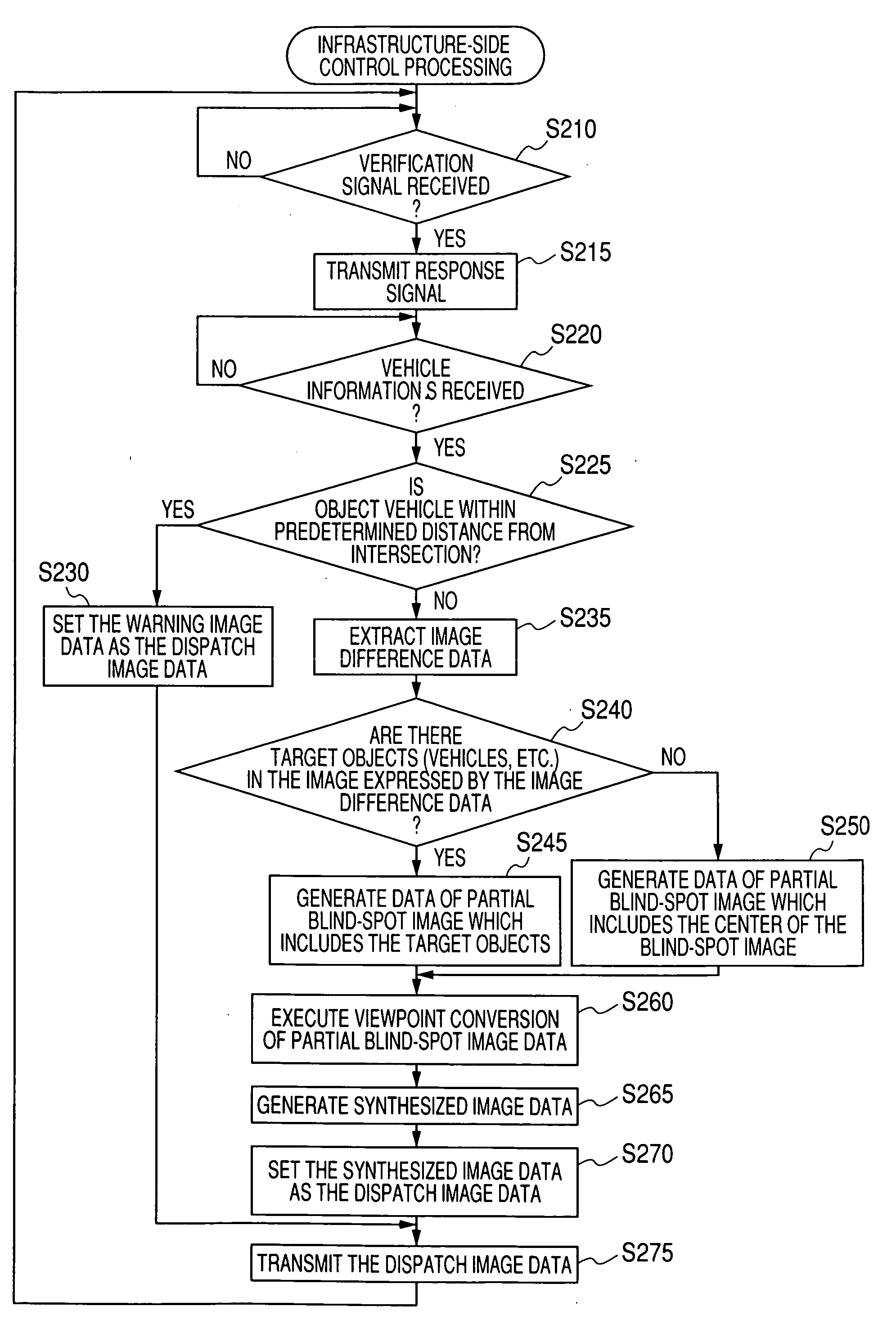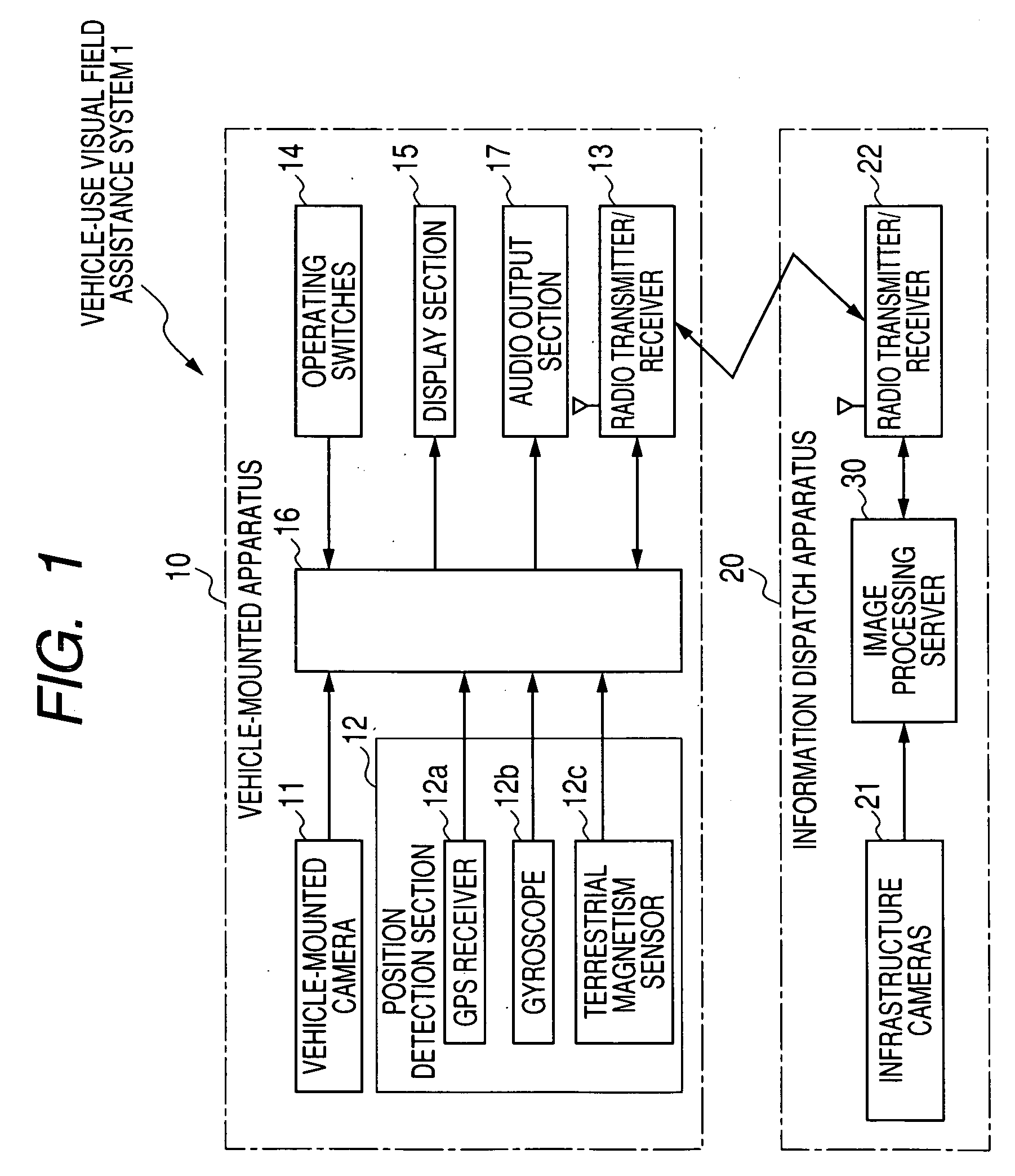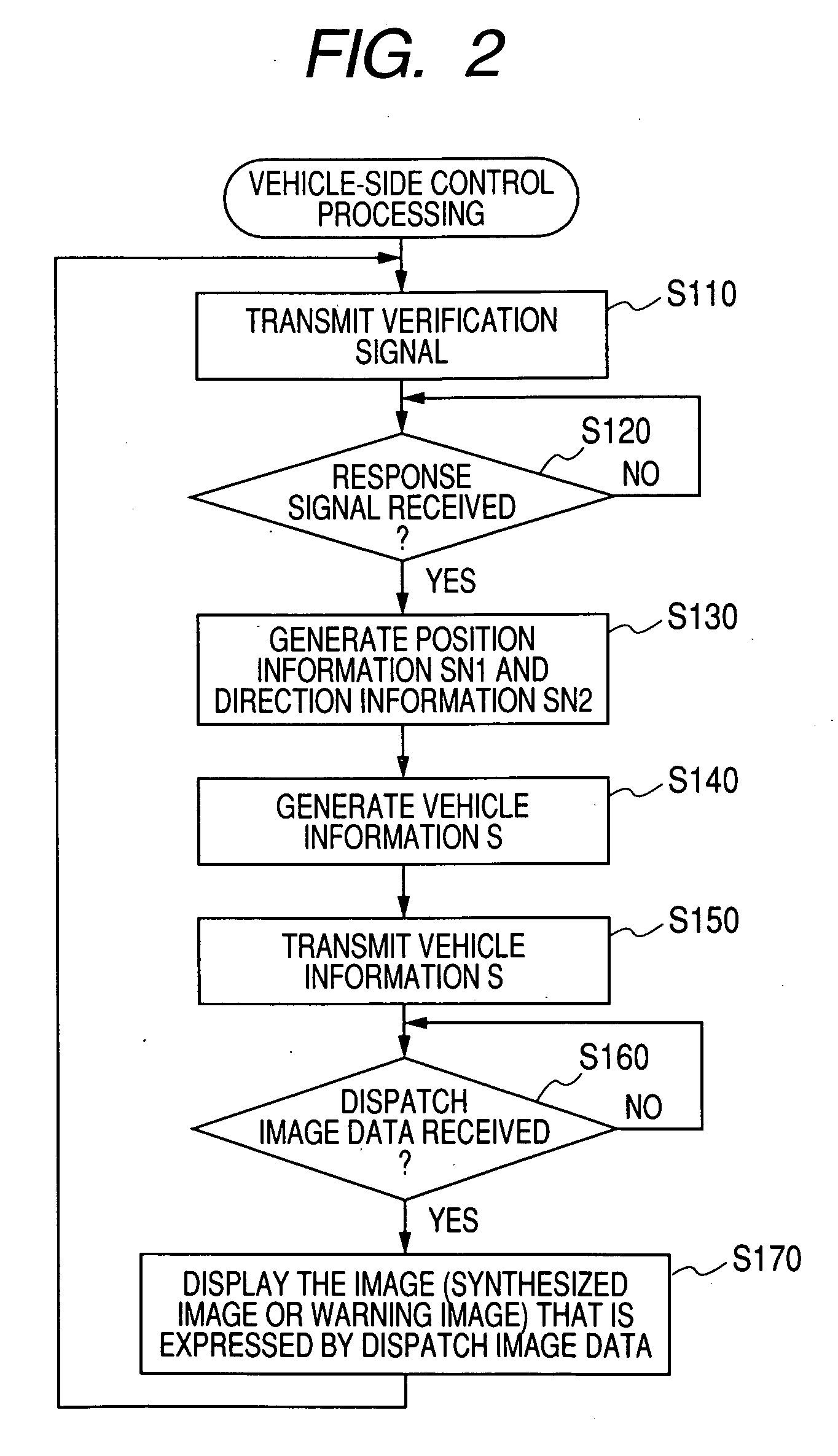Vehicle-use visual field assistance system in which information dispatch apparatus transmits images of blind spots to vehicles
a technology of information dispatch and vehicle, which is applied in the direction of traffic control systems, transportation and packaging, instruments, etc., can solve the problem of difficulty for the driver to directly comprehend the position relationships between objects, and achieve the effect of minimizing the amount of control processing that must be performed by the vehicle-mounted apparatus
- Summary
- Abstract
- Description
- Claims
- Application Information
AI Technical Summary
Benefits of technology
Problems solved by technology
Method used
Image
Examples
embodiment 1
Alternative Embodiment 1
[0112]With the first embodiment described above, the position information SN1 and direction information SN2 of the camera installed on the object vehicle are used as a basis for converting the viewpoint of the partial blind-spot image to the same viewpoint as that of the object vehicle camera. The resultant viewpoint-converted partial blind-spot image data are then combined with the forward-view image data to obtain a synthesized image.
[0113]However it would be equally possible to configure the information dispatch apparatus 20 to convert both the partial blind-spot image data and also the forward-view image data into data expressing an image having the viewpoint of the driver of the object vehicle, and to combine the resultant two sets of viewpoint-converted image data to obtain the synthesized image data. This viewpoint conversion of the forward-view image from the object vehicle camera could be done based upon the relative information SI that is transmitte...
embodiment 2
Alternative Embodiment 2
[0116]Instead of using an extracted section of a blind-spot image to generate a partial blind-spot image as described for the first embodiment above, it would be equally possible to perform viewpoint conversion of the difference image (expressed by the image difference data extracted in step S235 of FIG. 5) and to combine the resultant viewpoint-converted image difference data with the forward-view image data to obtain a synthesized image. In that case, the synthesized image would show only those target objects (vehicles, people) that are currently within the blind spot, combined with the forward-view image. Other (background) components of the blind-spot image would not appear in the synthesized image.
[0117]In that case, when performing synthesis of the image data, image enhancement processing (e.g., contrast enhancement, color enhancement, etc.) could be applied to the image difference data, to render the target bodies (vehicles, people) in the blind spot m...
embodiment 3
Alternative Embodiment 3
[0118]Instead of using partial blind-spot image data as with the above embodiment, it would be possible to perform viewpoint conversion of the data of an entire blind-spot image, and combine the resultant viewpoint-converted blind spot image data with the forward-view image data to obtain the synthesized image.
PUM
 Login to View More
Login to View More Abstract
Description
Claims
Application Information
 Login to View More
Login to View More - R&D
- Intellectual Property
- Life Sciences
- Materials
- Tech Scout
- Unparalleled Data Quality
- Higher Quality Content
- 60% Fewer Hallucinations
Browse by: Latest US Patents, China's latest patents, Technical Efficacy Thesaurus, Application Domain, Technology Topic, Popular Technical Reports.
© 2025 PatSnap. All rights reserved.Legal|Privacy policy|Modern Slavery Act Transparency Statement|Sitemap|About US| Contact US: help@patsnap.com



